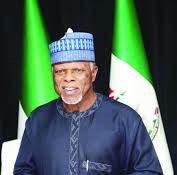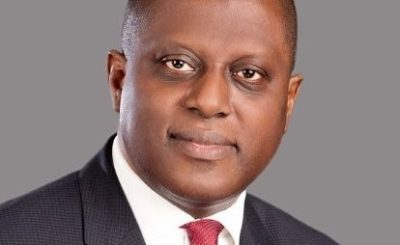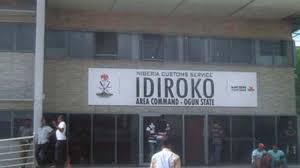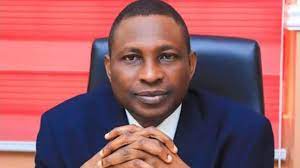By Stephen Ubanna
For years , past and present management of the Nigerian National Petroleum Co-orperation, NNPC, have been complaining of massive smuggling of Petroleum Products, particular, Premium Motor Spirit, PMS, popular, petrol, or fuel in local parlance, to neighbouring countries of the Bepublic of Benin, Niger, Tchad and the Central African country of Cameroon.
Given the price of a litre of petrol in Nigeria, which makes it one of the cheapest in the west African sub-region,, and thus a good source of business for smugglers across the border. Take for instance , the Consumption of the products across the country was said to have increased by about 30 million litres within one month , rising from the 1.33 billion litres consumed in February to 1.36 billion litres consumed last March.
Note that the Petroleum products consumption level in the country had been giving officials of the NNPC and the Department of Petroleum Resources, DPR, a cause for concern. The situation was so worrisome that NNPC, officials, believe that the Nigerian Customs Service, NCS, personnel wer not doing much to checkmate the activities of the cross border petroleum products smugglers. From the border Communities in Lagos, Ogun, Oyo, Osun, Ekiti, Cross River, Akwa Ibom, Sokoto, Kebbi, Zamfara, Katsina, Kano, Jigawa, Adamawa, Borno to Yobe state states, the story was the same: massive smuggling of smuggling of petroleum products across the borders.
Investigation by The Magazine shows that it was an organised Crime which allegedly involves security operatives including Customs personnel. It was not surprising why it was very difficult for the Customs anti-smuggling officers at the land border areas , particular Seme Command and the Federal Operations Unit, FOU, Zone A, to successfully track the PMS smugglers down.
Worried by the activities of the PMS , smugglers across the country, ,Maikanti Baru, an Engineer and a former, Group Managing Director , GMD, of NNPC, was said to have spearheaded the setting up of a tripartite Committee comprising of officials of the Corporation, DPR and NCS to check mate. But that was how far he could go.
Last August the, DPR , officials were said to have discovered at Monduva, a border Community between Nigeria and Cameroon, in Adamaw state . Officials of the DPR, were said to have intercepted 500,00 litres of PMS Concealed in an underground bunker. The state alone , going by the Nigerian Immigration Service, NIS, report has over 80 unapproved routes that could be used by smugglers to carry out their nefarious activities.
Given an insider information, Kyari lamented that the activities of the smugglers have been subverting the government’s efforts to ensure adequate supply of petroleum products in all parts of the country. It was not surprising why he had sought the support of Yusuf Magaji Bichi , Director General , Department of State Security, DSS, last month to help curb the rising incidences of petroleum Products smuggling across the borders.
An angry NNPC GMD, had said that the intolerable implication of the ‘’reign of smuggling syndicates has made Nigeria the ‘’unintended supplier of the products to the entire west and central African subregions’’. Unknown to Kyari, Hameed Ali, a retired Army Colonel and Comptroller General , NCS, who has the ears of President Muhammadu Buhari , was said to have got his approval to mobilise his men and other security operatives to close the nation’s land border routes to ensure that there is no import or export of cargoes out of the country. The fallout was the inauguration of the Border Drills last August in the south west comprising of Lagos, Ogun, Osun, Oyo and Ondo and Ekiti, south-south, north western states of Kaduna, Katsina, Kano, Jigawa, Sokoto , Kebbi and Zamfara . The Border drills operations was also extended to the north Central geopolitical region.

Insiders informed The Magazine that since Ali, the Customs Comptroller General, in Collaboration with Muhammad Babadende, his counterpart in NIS and other security agencies effectively took over control of the official and unofficial border routes across the country the syndicate allegedly involved in the smuggling of petroleum products had ran ground.
This is s evident going by the drop in the fuel Consumption level in the country. That much was confirmed by the Customs helmsman. According to him, the country’s fuel Consumption level of the country had dropped by 10.2 million litres, an indication that Nigeria was the major source of cheap fuel for Benin, Niger and other countries in the west and central African sub-regions
This may have emboldened the Customs boss , who has been given the free hand by the Katsina born Nigerian President to do everything within his powers to checkmate the activities of these cross- border smugglers Who are sabotaging the economy finally came out with the ban on the supply of PMS to nearby border filling stations across the country.
A memo to confirming the ban was said to have been made public on Wednesday, November 6, 2019. The memo which was said to have been signed by Austin Chidi, a Deputy Comptroller General, DCG, in-charge of Enforcement , Inspection and Investigation reads in part: The Comptroller General of Customs has directed that henceforth, no petroleum product, no matter the Tank size, is permitted to be discharged in any filling station within 20 Km to the border.
Joseph Attah, a Deputy Comptroller and Customs Spokesperson, noted that since the closure of the land borders across the country, filling stations have been springing up at different border Communities across the country with the intention to cash on the closure to smuggle PMS. .This is bad news for marketers who had been given operating License by DPR to open filling stations at the land border areas.
A visitor to Seme border Community recently,, for instance, would be surprised at the number of filling stations tha tare close to the border selling products. The situation is the same at border communities across the country , with some of them having under-ground tanks that connects to dealers in Republic of Benin. At the Owode axis alone, in Badagry west, local government area, where there are over 100 filling stations servicing fewer motorists and Okada riders plying the road.
Only recently the Magazine did an undercover story on Pashi Community, within the Badagry west local government area where are over 20 functional filling stations servicing less than 5,00 people , an indication that the fillings stations were set for bunkering purposes.
Security watchers would think that the filling stations are not always opened for business.’’ But visit the Community at night , it is a different ball game: buying and selling of products to motorists including those with 25 litres jerry Cans coming from undisclosed locations,’’ an Okada remarked. The village , which is on the right side of the road when going to Owode, where Seme Command , has an Out station, according to sources, is separated from a Republic of Benin nearby Community by a river.
Many blame the DPR , for creating the room for Petroleum Product smugglers to thrive at the border areas because of the indiscriminate issuance of operating License to dealers. They noted that if the DPR, had followed strictly the laid down regulations that filling stations must only be established about 20 Kms to the border Community, there would not be any basis for the massive smuggling of products currently being experienced at the boreders Communities across the country.
This is evident going by what is happening at Seme and Owode axis,, where Beninese motorists who easily drive in to fill their tanks and also fill their ‘’25’’ Jerry Cans and return to their country are no longer finding it funny.
The number of these Beninese selling petrol in bottles , along the Seme – Cotonou road, speaks volume. The Magazine finding shows that since the border Closure became effective last August, some of those roadside petrol dealers along the Seme –Cotonou road had disappeared. This is because of the difficulty being encountered in the hand of NIS personnel at the land border,as they insist on citing the International Passport of the traveller and tr purpose of visistng Nigeria Those who could not give reasonable explanation on why they are coming to Nigerian at the Se/Krake Joint border were said to have been turned back.
This may have informed why the Syndicate inolved in the smuggling of petroleum products across the country’s borders were said to have gone under – ground to avoid playing into playing into the waiting hands of Customs Personnel on the road.
The situation is worse at Seme and Badagry west where, Mohammed Uba Garba, the Seme Area Comptroller has tightened up security that it has become very difficult for the die- hard PMS smugglers to practice their trade.
Patrick Talon, and other Heads of State and Government , from the member countries of the Economic Community of West African States , ECOWAS, had expected to use the opportunity of the Economic bloc Summit in Niamey, Niger, hosted by President Issoufou Muhammad, to revisit the Nigeria border closure between Nigeria and her neighbours and use the opportunity to impress it upon Buhari, the Nigerian President to have a rethink on the January 31, 2020, set deadline, of reopening the closed borders They may have been disappointed that he had sent Yemi Osinbajo, the Vice President to represent him at the Summit.







